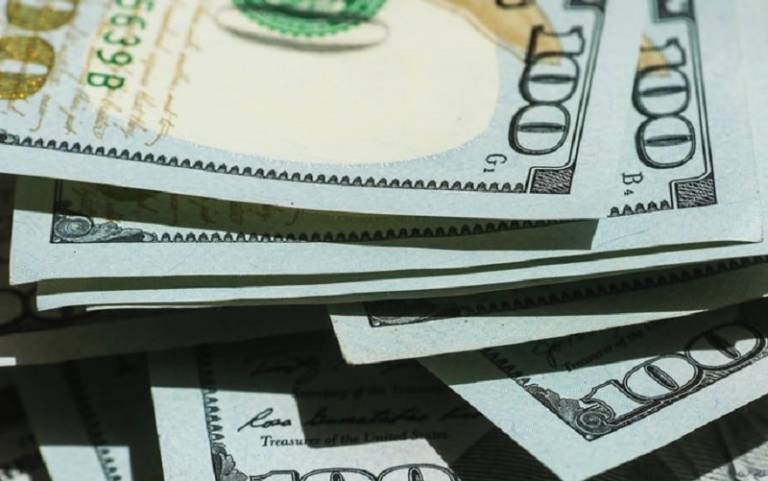What Is the Role of the Ultra-Rich in Addressing Global Challenges?
10 November 2021
The recent exchange between Tesla CEO Elon Musk and the World Food Programme (WFP) has put the spotlight on the role of the ultra-rich in addressing pressing global challenges such as hunger.

By Hugo Bourhis (MSc Global Governance and Ethics)
Earlier this month, Executive Director of the UN World Food Programme (WFP), David Beasley, declared that just a fraction of the net worth of a small group of ultra-wealthy individuals could help to tackle world hunger, and encouraged them to "step up now, on a one-time basis."
2020 was marked by a worsening of global hunger, largely due to the fallout of COVID-19, which has deepened inequality, disrupted economies and labour markets, and plunged millions into extreme poverty. In addition, the disruption of supply chains due to the pandemic, as well as weather uncertainties and climate change, has led to a surge in food prices. The Food and Agriculture Organization of the United Nations (FAO) Food Price Index, which measures international prices for a basket of food commodities, rose from 101.4 points to 133.2 points between October 2020 and October 2021.
FAO, alongside WFP, the International Fund for Agricultural Development (IFAD), the United Nations Children's Fund (UNICEF) and the World Health Organization (WHO), estimate that 768 million were undernourished in 2020, a level not seen since 2006. This figure represents an increase of more than 118 million people compared with 2019, the largest increase in recent years. Unfortunately, this trend is not new, as hunger has been creeping upwards since 2014, undermining hopes of ending hunger after decades of progress towards Sustainable Development Goal (SDG) 2: Zero Hunger.
As part of CNN’s interview with the WFP Executive Director, $6 billion was suggested as a sum to help meet this growing demand and save 42 million people at risk of starvation if aid is not provided. Mr Beasley specifically mentioned two of the world’s richest men, Jeff Bezos and Elon Musk, who could help the hungry.
Tesla CEO Elon Musk was quick to respond and issued his own challenge to WFP on Twitter: explain how $6 billion could solve world hunger and he would sell some of his Tesla shares "right now." In a follow-up tweet, Elon Musk added that the WFP plan would also need to include "open-source accounting, so the public sees precisely how the money is spent."
While the WFP Executive Director considered Elon Musk’s entry into the conversation about ending world hunger to be a “game-changer,” we can question the success of such an exchange. Such a public and widely relayed call-out could help increase public pressure on billionaires to act on global challenges such as world hunger and could be viewed as encouraging them to act rather than criticizing and questioning the motives behind their philanthropic actions.
However, as of November 2021, Elon Musk net worth represents $335 billion, making him the richest man in the world according to Bloomberg’s Billionaires index. For reference, less than 40 countries in the world have a GDP of more than $335 billion. This imbalance and the growing inequality between the wealthiest and the poorest raises questions, particularly in the context of COVID-19, where many have lost their jobs whilst the ultra-rich have seen their fortunes skyrocket. In 2020 alone, Musk added $140 billion to his net worth, Jeff Bezos more than $72 billion and Mark Zuckerberg, co-founder and CEO of Facebook, saw his net worth increase by more than $26 billion.
Asking for $6 billion, less than 1.8 per cent of Musk's overall net worth and 4 per cent of what he earned in 2020 alone, does not seem unreasonable in view of how this could help prevent impending catastrophic famines and future migration and displacement resulting from hunger.
Musk's emphasis on transparency to avoid handing over a small portion of his fortune to WFP is hardly new, as many of the ultra-rich like to point out that they want to pay more tax but cannot bear to see their wealth wasted.
Indeed, many of the world's billionaires, such as Warren Buffett and Bill Gates, have been calling for higher taxes for several years now. A group of US billionaires including businessman George Soros, Facebook co-founder Chris Hughes and the heirs to the Hyatt and Disney empires, among others, also published a letter asking candidates in the 2020 US election to support the idea. A similar initiative also took place in France the same year where a group of millionaires signed an open letter asking to be taxed more in response to the economic fallout of the pandemic.
However, Musk's statement also raises questions concerning the transparency and effectiveness of the various international actors working on these global issues, including the UN agencies. These agencies are often seen as ‘black boxes’ and calls for greater transparency of how humanitarian financing is allocated and accounted for are long-standing. Although it is difficult to measure the exact impact of these agencies, the normalisation of world hunger can be seen as revealing the limits of their effectiveness, raising doubt about whether or not they provide a viable structure for addressing this not-so-wicked problem.
Furthermore, the exchange between Musk and WFP highlights the need to differentiate between food aid and aid to end hunger. Although WFP is primarily concerned with immediate world hunger needs, particularly in conflict areas, the issue of world hunger goes beyond solely providing food, and it is vital that its systemic dimensions – from agrobiodiversity to transport infrastructure and waste value chains – are not ignored to avoid any potential trade-offs and risks. More broadly, this exchange reveals the difference in language between personalities such as Elon Musk, seeking the quickest possible result, and UN agencies and other entities aiming to transform the system in depth to solve world hunger.
What one billionaire sees as a good reason to give money may not be what others see as the most pressing need, and one wonders whether billionaires are really best placed to decide where to invest that money and to what cause. With nearly one in ten of the world’s people suffering from malnutrition, the proposal to make Musk and other billionaires pay a share of the costs of helping the poor might be considered a no-brainer; the colonisation of space can wait.
 Close
Close


